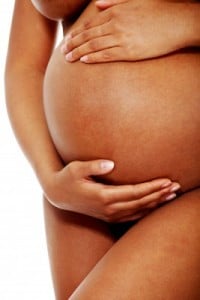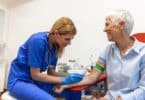
For the small study, researchers recruited 333 women between the ages of 21 to 48. The oestrogen receptor status of these women was unknown, as was the disease outcome of each woman. All of them became pregnant sometime after their diagnosis, but were also in remission at the time of conception. Researchers then recruited a control group of 874 women, also breast cancer patients, who did not become pregnant any time after their diagnosis.
Dr. Hatem Azim, head researcher in the study and oncologist at Jules Bordet Institute in Brussels said the following about the study results:
“Frequently, when women with history of breast cancer become pregnant, some physicians advise them to have an abortion for fear that completing the pregnancy could have a detrimental effect on the outcome of their disease. We found that this was not true and the outcome was similar, irrespective of whether the pregnancy was complete or not. Out of all the women, 5.7% had ER+ disease, but the study showed there was no difference in the length of time women with either ER+ or ER- disease survived without their disease recurring compared with those who did not become pregnant.”
Essentially, the results concluded that 30 percent of all women, regardless of whether or not they became pregnant within the five years following the study, saw a return of their disease. The data also seemed to indicate that women who did become pregnant lived longer than those that didn’t. Variables such as choosing to breastfeed or have an abortion did not seem to have an effect on the overall outcome of either group.
This could be great news for women that have been diagnosed with breast cancer and still want to have children. However, it should be noted that not all experts are ready to jump on board with the researcher’s theory.
David Cameron at University of Edinburgh had this to say:
“It is important to acknowledge that there are limitations in this kind of case control study, and so whilst an important piece of research, it cannot yet be taken as definitive proof.”






